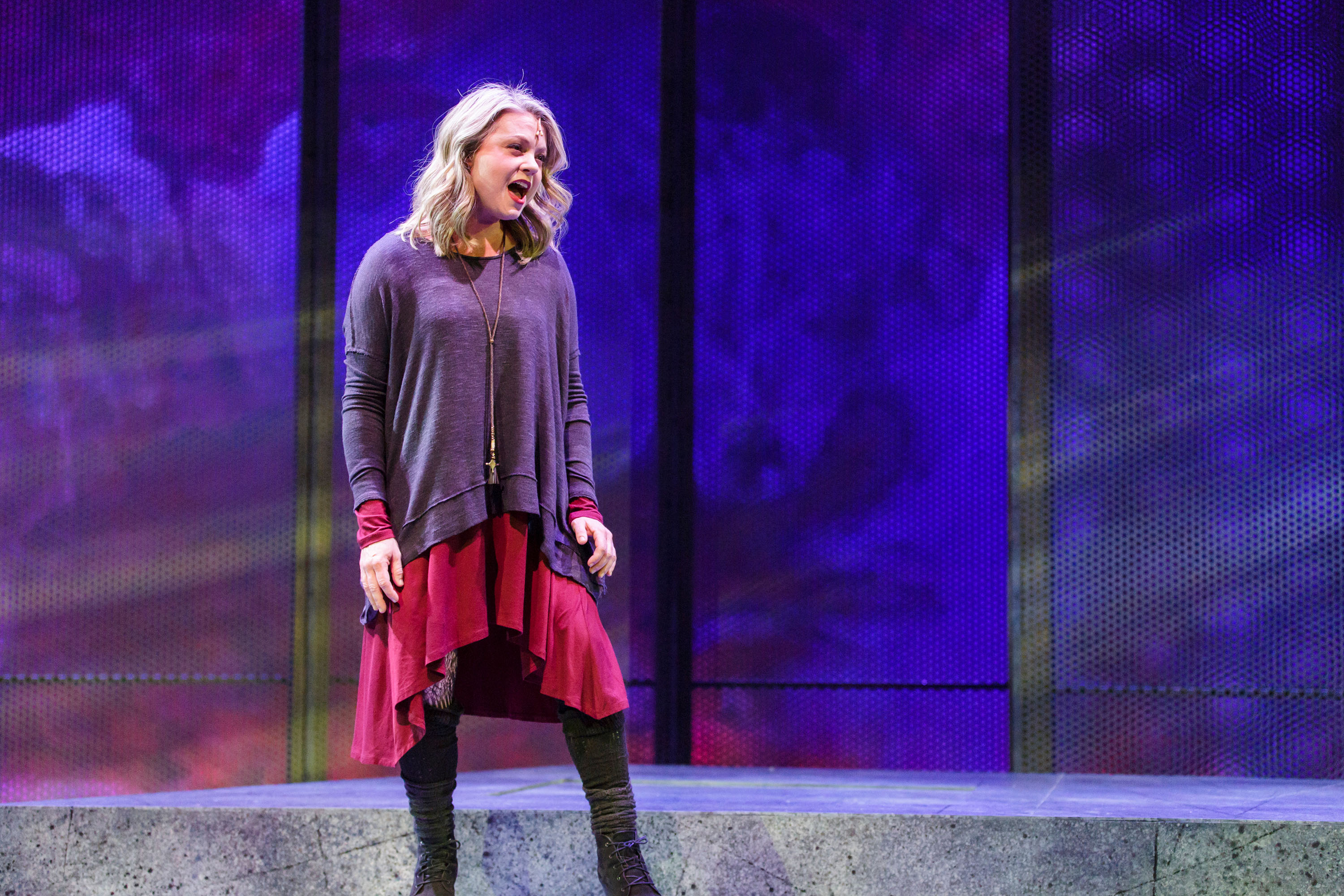Opening Nights
Jacques Brel Is Alive and Well & Living in Paris
ACT Theatre, 700 Union St., 292-7676, acttheatre.org. $15–$49. 7:30 p.m. Tues.–Wed., 8 p.m. Thurs.–Fri., 2 & 8 p.m. Sat., 2 & 7 p.m. Sun. Ends May 17.
First off, Jacques Brel is not alive. The Belgian crooner died of a pulmonary embolism back in 1978, 10 years after this musical revue made its debut off-Broadway. The revue came in the autumn of a hugely successful career. Brel’s songs, by turns sardonic, fanciful, tragic and sincere, embodied Western European life in the decades following World War II. Despite a brief period of stateside popularity in the mid-’60s and a long list of accomplished American songwriters who performed translations of his work after his prime, most Americans didn’t get it—we were all swooning over the Beatles’ playful transgressions and Sinatra’s new masculinity. But Brel’s songs —sung mostly in French and Dutch—were a touchstone for Europeans at the time, their fragililty and terror, beauty and hopefulness a reflection of the world around him.
It’s not a bad fit in our current world, either, and this production, directed by the 5th Avenue Theatre’s artistic director David Armstrong, tries hard to make that point. On opener “Marathon”—a trance-inducing number that fit the entire history of the 20th century into a pop song decades before Billy Joel did the same—an extra verse or two have been added so that the five-member cast can shoehorn in a Twitter reference among the flappers and Hitler. A rousing performance of “The Middle Class” is set in the streets of downtown Seattle, with the ensemble’s three men, drunk, sneering a translation of Brel’s lyrics, “The middle class are just like pigs/The older they get, the dumber they get.” The parallels to the city’s current bro infestation are made and the humor is undeniable, but if the mind lingers on the fact of our currently threatened middle class, the critique falls apart. Likewise, but much more effectively, Brel’s condemnation of matador culture, “The Bulls,” is here cloaked in the trappings of American football. At the song’s end, the stage flooded in blood-red light, Brel’s long list of cities ravaged by man’s lust for violence ends with a more current locale: “Baghdad!” singer Eric Ankrim shouts to an “Ole!” from the ensemble. The audience around me gasped.
Such cheap shocks, though, are just window dressing for this production, which forgoes the reworking of recent revivals and adheres, almost entirely, to the original 1968 songlist with translations by Eric Blau and Mort Shuman. Brel’s genius, of course, carries the night. His musical punch lines are crisp, his desperation real, his anger frightening. And the cast does a fine job of bringing these songs to life. Ankrim, in particular, is a joy to watch, his pronounced physicality and devilish demeanor imbuing the material with the uncanniness it requires. The star of the production, though, is Kendra Kassebaum, whose aching renditions of some of Brel’s most heart-wrenching balladry are undeniable. Near the end of Act 2 she takes the stage with a lone acoustic guitarist to perform “Ne Me Quitte Pas,” the only deviation from the original production’s songlist and the only number delivered in its original French. Translations were provided but unnecessary. As she recited Brel’s poetry, pleading with a lover not to leave her behind, Kassebaum wept. She wasn’t the only one. Mark BaumGarten
No Way to Treat a Lady
Village Theatre, 303 Front St. N. (Issaquah), 425-392-2202. $35–$67. Runs Wed.–Sun.; see villagetheatre.org for exact schedule. Ends April 26. (Runs May 1–24 in Everett.)
In light of Robert Durst’s recent revelations on the HBO documentary series The Jinx, true-crime junkies like me spent last week on a media bender. Luckily, No Way to Treat a Lady offers some hair of the dog. It’s a strange musical comedy, reworked since its last appearance at Village Theatre in 1999 (also directed by Steve Tomkins), which was originally inspired by the Boston Strangler—according to source novelist William Goldman. (There’s a middling 1968 film version, too.) Predictable as something on LMN, Douglas J. Cohen’s 1987 gore-free, family-friendly show is one part murder-porn-gasm, one part hokey musical, and all parts fun.
Suffering a deadly devotion to his late mother (a celebrated actress), failed thespian Christopher “Kit” Gill (Nick DeSantis) dons various disguises and adopts different dialects whilst murdering women who remind him of her. (If he can’t be famous, he decides, he’ll be infamous.) Dissatisfied with his media mentions, he begins an antagonistic telephone relationship with NYPD detective Morris Brummell (Dane Stokinger). This cat-and-mouse script smartly balances engaging action with witty dialogue and lyrics.
Under Tomkins’ shrewd direction, this ensemble enchants with energetic singing and excellent acting. Notably, as the cop’s suffocating Jewish mother, Jayne Muirhead provides a performance reminiscent of Estelle Getty. She and Morris’ shiksa love interest (Jessica Skerritt) provide the show’s most memorable moment in the number “So Much in Common,” with Morris adding the lyric, “Now that ‘Queen Esther’ has met her match.” Bobbi Kotula establishes herself as the production’s versatile champion, distinctly depicting Kit’s mother and his victims.
Bill Forrester’s Roy Lichtenstein-inspired set supplies a seamless simplicity while shifting among Manhattan locations. Aaron Copp’s vibrant lighting design also lends to the flat, near-Pop Art caricatures. The show is set in the early ’60s of Mad Men and Goldman’s novel, which Melanie Taylor Burgess’ costumes impeccably convey. Her stunning outfits for Skerritt radiate Uptown elegance from head to toe. Seriously, her shoes sometimes distracted me from the playful murder mystery.
Given that serial killer Kit even plays one scene in drag (a stratagem Durst also employed to elude capture), can a stage-musical version of The Jinx be far behind? ALYSSA DYKSTERHOUSe
E
stage@seattleweekly.com




